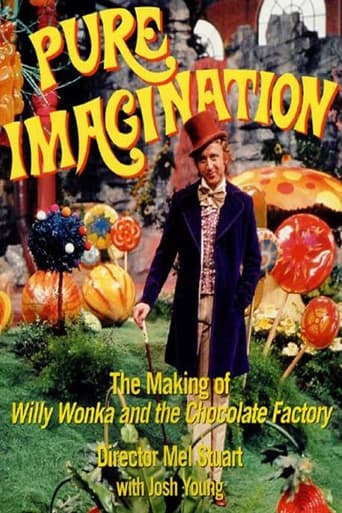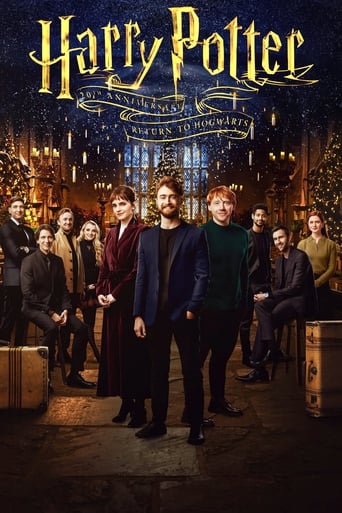PiraBit
if their story seems completely bonkers, almost like a feverish work of fiction, you ain't heard nothing yet.
Juana
what a terribly boring film. I'm sorry but this is absolutely not deserving of best picture and will be forgotten quickly. Entertaining and engaging cinema? No. Nothing performances with flat faces and mistaking silence for subtlety.
Fleur
Actress is magnificent and exudes a hypnotic screen presence in this affecting drama.
2DawgZ
Not a very good documentary. The credentials and affiliations of the "experts" are never made clear (another reviewer has gone to the trouble of looking them up and they are all Christian believers, one Roman Catholic and the rest conservative to fundamentalist clergy).My problem is that they misrepresent the actual age of the four canonical gospels, stating that they are "contemporary" to the events described. Nothing could be further from the truth. The earliest gospel, Mark, was written two generations after the supposed crucifixion of Jesus.Thus, we have "experts" debunking the book with "facts" that have themselves been debunked.Shameful.
dy158
This was shown here in my country few weeks back as part of The Da Vinci Code specials. It's not that I want to give that kind of rating. Lately whenever I enter a bookstore here in my country, I will see plenty of books which are all trying to debunk the myths in Dan Brown's bestseller. Saying this is not right and all that.And I realised as I watched the documentary, it's mostly of those people who might had wrote all those kind of books which I can see in the local bookstores here lately. All it takes is just one controversial bestseller (for the record, I had read the novel too and I do enjoy as it's, fiction) to launch all these so-called books to debunk the myths and all that.Really, if inviting those academics and art historians and all that can really debunk the myths being raised in the bestseller, then how about those who wrote about the bloodline? Inviting those kind of people too is also alright (in my opinion) as well, though maybe not all can accept what they want to say and stake their claims.Like that at least, one can really judge which group has proved their points across better. The academics featured in this documentary, or those who wrote about the bloodline and everything in between. One can really decide from there for themselves.My final point is what I had given to the title of this review of mine.
SpokenFor
As one interested in learning more about the historical accuracy of the claims of the Dan Brown's the Da Vinci Code, this documentary was very helpful. When I watched the documentary, I did not get the sense that the documentary was out to pose itself as neutral, but because the Da Vinci Code was not neutral to begin with, I felt this documentary was very informative and any biasness is inevitable. It helps to see this documentary when you are interested in learning about the historical accuracy of Dan Brown's powerful masterpiece but do not have the resources to purchase all the books about it. It talks about extra-biblical material that shows the great extent of the inaccuracy of SOME of Dan Brown's claims, material that can be verified, such as commentaries by art historians, records of Leonardo Da Vinci's work, a historically known hoax and research into if certain religious groups really built what they are portrayed as having built. Most helpful, the documentary involved comments from more than one author and scholar, but each with diverse backgrounds. Because of this, the audience gets a good exposure to a wide range of very specific and evidence-based points, rather than mere reaction from a rigidly Biblical perspective. It's a must-see and good investment to have in the library for those who want to know all sides of Dan Brown's claims.
pendragonaviation
The "Breaking the Da Vinci Code" production attempts to portray itself as a documentary investigation of the Jesus/Mary Magdalen marriage controversy (among others) as set forth in Dan Brown's novel THE DA VINCI CODE. Couching the production as a legitimate investigation implies a fair and balanced presentation of facts and opinions by "experts" followed by an unbiased debate which allows the viewer to form a final opinion.Let's take a look at the production's "experts:" Chuck Missler, of the Koinonia House ("Bringing the world into focus through the lens of Scripture"); Paul L. Maier, creator of the Nelson Ministry Services; Darrell Bock, Professor of Spiritual Development and Culture at the Dallas Theological Seminary; Erwin Lutzer, Moody Church Christian Life Center; Sandra Miesel, Catholic journalist; and Jim Garlow, Pastor, Skyline Wesleyan Church, San Diego, CA. (Credentials are from a Google search). It should be noted that most of these unbiased experts have written their own books debunking the marriage controversy and are just as interested in book sales as is Dan Brown. If the production were "fair and balanced," one would expect to hear from such experts as Elaine Pagels, author of THE GNOSTIC GOSPELS; and Michael Baigent, Richard Leigh and Henry Lincoln, authors of HOLY BLOOD, HOLY GRAIL (to name just a few). Admittedly these persons have their own paradigms, but they do balance the equation.No one who has engaged in legitimate scientific historical research on any subject would try to debunk a hypothesis using phrases such as "that's just wrong," or by arguing that certain manuscripts are heretical because they were discovered in Egypt and were written in Coptic. Nor could one legitimately conclude that because there is no evidence that Jesus was married therefore He was not married--evidence which could have been purged from the historical record (including the official canon) by the early Church. Indeed, there was no evidence for plate tectonics or black holes or evolution until it was discovered and put to rigorous scientific scrutiny.It is this viewer's opinion that "Breaking the Da Vinci Code" is a thinly-veiled attempt to promote fundamentalist Christian dogma. There is nothing wrong with that, except that it incorrectly presents itself as a non-biased documentary and could therefore be considered propaganda. If your faith is in need of strengthening and you are willing to accept without question the opinions of its experts, then "Breaking the Da Vinci Code" will probably do just that. If, however, you prefer to look at all sides of an issue and make your own decision as to its veracity, then this production should be taken for what it is.Finally, "Breaking the Da Vinci Code" is also something else: at the end is an invitation for the viewer to purchase a DVD or VHS for a nominal fee, followed by a warning of what will happen to you if you make illegal copies. Is it all about the money?

